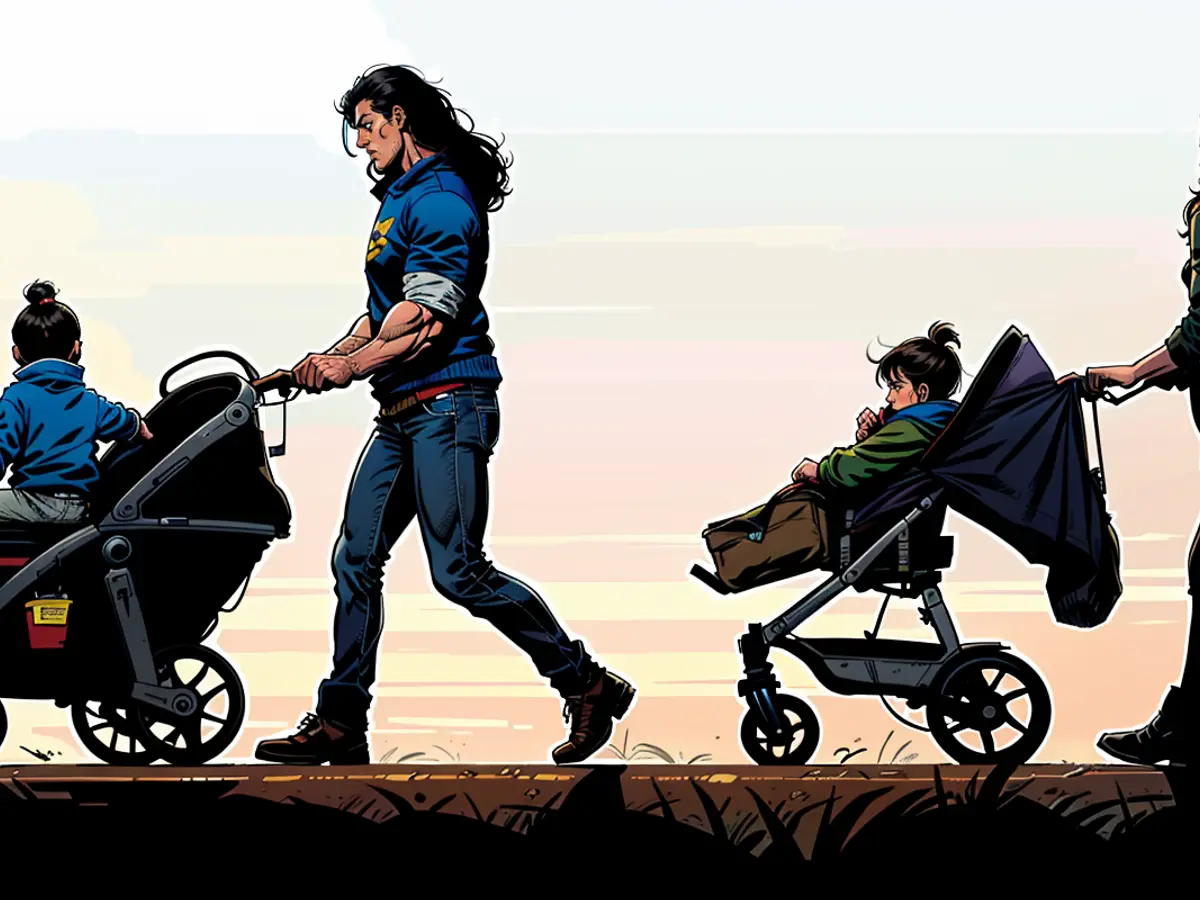Social affairs - At risk of poverty: one in seven children and young people at risk
Every seventh child and adolescent was at risk of poverty in the past year. Approximately 2.1 million minors represented a poverty risk rate of 14 percent, according to the Federal Statistical Office. This rate was slightly lower than the previous year, with 15 percent of minors being at risk of poverty in 2022.
Poverty, according to the Federal Office, is a multidimensional phenomenon that can manifest not only in financial but also in social factors. Therefore, in 2023, almost every fourth child in Germany was threatened by poverty or social exclusion.
The educational background of the parents plays a role, explained the statisticians. "The poverty risk rate of minors whose parents have a lower educational background than a secondary school diploma or a vocational degree without a professional qualification was 36.8 percent in Germany in 2023," it was stated. For parents with a medium educational background, such as an Abitur or a vocational training, the risk was around 14.3 percent. For parents with a higher educational background, such as a master's title or a completed studies, the risk was only 5.8 percent.
The Parity Welfare Association considers these figures to be a "seriously alarming message." Child poverty is generally stagnating. In such a wealthy country as Germany, it is not possible that every fourth child has to carry this burden in their childhood and adolescence, said Joachim Rock, Managing Director of the Parity Welfare Association to the dpa. He demanded immediate political measures: "No child is alone in poverty, but this is always in a family context. That means we need to improve the income situation of families as a whole."
Economist Irene Becker assessed the figures positively at first glance. Political measures such as inflation adjustment payments or the increase in the minimum wage in 2022 could have had a positive effect. However, she referred to the real income decline, especially for poverty-threatened families: "Someone living directly at the poverty line has effectively less than in real terms, less than in 2020," she said. "So all the measures and interventions and attempts of politics to counteract, they couldn't completely offset the price increase in 2022."
It is particularly difficult for families in the "poverty range," she said, "because these people have no cushion where they can fall back on savings to offset price increases." This ultimately means realistically less food or other daily necessities - also for children and adolescents in these families.
In terms of poverty risk, a person is considered at risk who has less than 60 percent of the average income of the overall population. In 2023, this value for a single person in Germany was 1,314 euros net per month, and for two adults with two children under 14 years of age, it was 2,759 euros net per month.
The Federal Office defines poverty or social exclusion as the presence of one or more of the three criteria of poverty risk, significant material deprivation, or a household with very low employment income. It orientates itself towards a European guideline, which makes the data comparable.
According to the data, Germany, with a 23.9% share of affected individuals, is below the European average of 24.8%, but behind countries such as Slovenia (10.7%), Czech Republic (15.0%), Denmark (15.3%), and Croatia (17.3%). The situation is much worse, however, in Romania, where the percentage of affected children and youth stands at 39%. Spain (34.5%) and France (26.6%) also trail behind Germany in this regard.
- Despite Germany having a lower poverty risk rate for minors compared to the previous year, almost every fourth child still faces the risk of poverty or social exclusion in 2023.
- This poverty issue in Germany, as highlighted by Destatis, extends beyond just financial aspects and includes social factors as well.
- In Wiesbaden, the statistics show that the poverty risk rate of minors is significantly higher for children whose parents have a lower educational background compared to those with a higher educational background.
- The German Social Affairs Ministry should take immediate action to improve the income situation of families, considering that every child in a poverty-threatened family is part of a family unit at risk.








